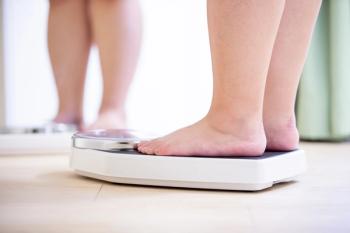
Bottle feeding beyond infancy poses risk of obesity by age 5
Parents who continue to bottle feed their infants past the first birthday are encouraging behaviors that may contribute to obesity by the time their children enter kindergarten.
Parents who continue to bottle feed their infants past the first birthday are encouraging behaviors that may contribute to obesity by the time their children enter kindergarten.
The findings of a cohort study of 6,750 US preschool-aged children born in 2001 for the association between bottle use at 24 months of age and obesity at 5.5 years were published in the Journal of Pediatrics.
Researchers defined prolonged bottle use as using a bottle later than 12 to 14 months of age, including a bottle to feed liquids during meals and snacks, putting an infant to bed with a bottle, or both. They screened study participants for parent-reported bottle use at 24 months and identified prolonged bottle users as those children who drank primarily from a bottle (regular bottle users), received a bottle at bedtime, or both. All other children were categorized as not using a bottle at 24 months.
After analysis, data showed that of the 17.6% of study participants identified as obese (sex-specific body mass index-for-age ≥ 95th percentile) at 5.5 years of age, 22.3% were bottle users at 24 months of age. Prevalence of obesity was similar in those children who were only regular bottle users and only bedtime bottle users (21.1% and 22.9%, respectively). Sixteen percent of nonbottle users were identified as obese.
After adjusting for covariates such as socioeconomic status, maternal obesity and smoking, early infant feeding practices, and weight at birth and 9 months of age, the odds of obesity at 5.5 years of age were 1.33 times greater for children who were using a bottle at 24 months compared with children who were not.
Researchers acknowledged that they lacked data on the children’s physical activity and specific aspects of their diets. However, they note that prolonged bottle feeding leads to consuming calories in excess over dietary needs, which contributes to weight gain over time. Eliminating bottle feeding after a child’s first birthday may prevent obesity along with other health problems, they say.
Gooze RA, Anderson SE, Whitaker RD. Prolonged bottle use and obesity at 5.5 years of age in US children. J Pediatrics. 2011. Epub ahead of print.
Newsletter
Access practical, evidence-based guidance to support better care for our youngest patients. Join our email list for the latest clinical updates.






